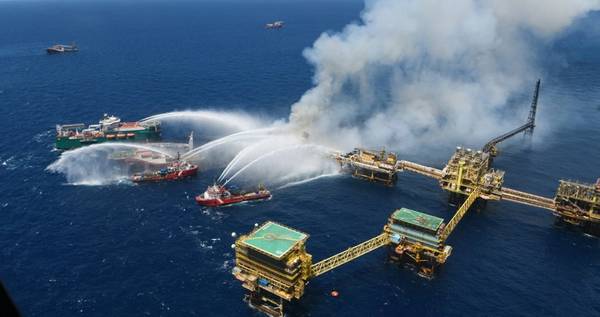
Offshore incidents can be disastrous, resulting in injuries, death, and enormous emotional and financial hardships. Knowing how to handle the aftermath of an offshore mishap is critical whether you are a marine worker, a passenger on a cruise ship, or engaging in recreational activities at sea. This article describes vital procedures to take after such an occurrence to safeguard your safety, defend your legal rights, and seek the required recovery assistance.

1. Prioritize Safety and Seek Medical Attention
The first and most critical step following an offshore catastrophe is prioritizing your and others’ safety. Evaluate the situation and, if possible, relocate to a safe location. If you or anybody else requires medical treatment, dial 911 right away.
Prompt medical attention is critical because it ensures that your injuries are properly documented and treated, and it can serve as the foundation for any future legal claims.
2. Report the Accident
Notify the appropriate authorities or the vessel’s crew of the offshore mishap. This step is critical for starting an inquiry into the occurrence and creating correct documentation. Whether it is a work-related or recreational accident, documenting the accident helps establish a record of events and the groundwork for any subsequent legal or insurance claims.
3. Gather Evidence
If legal action is taken, it is critical to preserve evidence to create a compelling case. Gather as much evidence as possible, including photographs, videos, and written witness statements. Document the accident scene, any evident risks, and any injuries received. Record all interactions with authorities, medical professionals, and anyone else involved.
4. Seek Legal Counsel
After an offshore accident, it is crucial to consult with an offshore accident lawyer. They can advise you on your legal rights, advise you on prospective claims, and help you negotiate the complex legal procedure.
A knowledgeable attorney will assist you in gathering evidence, determining liability, and advocating for just compensation for your injuries, medical expenses, lost earnings, and other losses.
5. Notify Your Employer and Insurance Providers
If the offshore disaster occurred while you were working, contact your employer immediately. Report the accident by the company’s established protocols, and record all communications.
In addition, notify your insurance providers, whether it is personal injury insurance or workers’ compensation insurance, about the accident. Reporting the occurrence as soon as possible can help to commence the claims procedure and safeguard your rights to compensation.
6. Obtain Support and Counseling
Dealing with the emotional and psychological consequences of an offshore catastrophe can be difficult. To cope with the trauma, contact your support network, friends, and family. Seek competent counseling or therapy for any emotional or mental health difficulties due to the accident. Taking care of your entire health is critical during this trying time.
Following an offshore accident, it is crucial to take immediate action to protect your well-being, preserve evidence, and safeguard your legal rights. Remember, navigating the aftermath requires resilience, but by taking these steps, you empower yourself to seek justice and rebuild your life.
As a result, you may confidently negotiate the aftermath of an offshore accident, ensuring that your rights are protected and that you receive the compensation and assistance you deserve.




